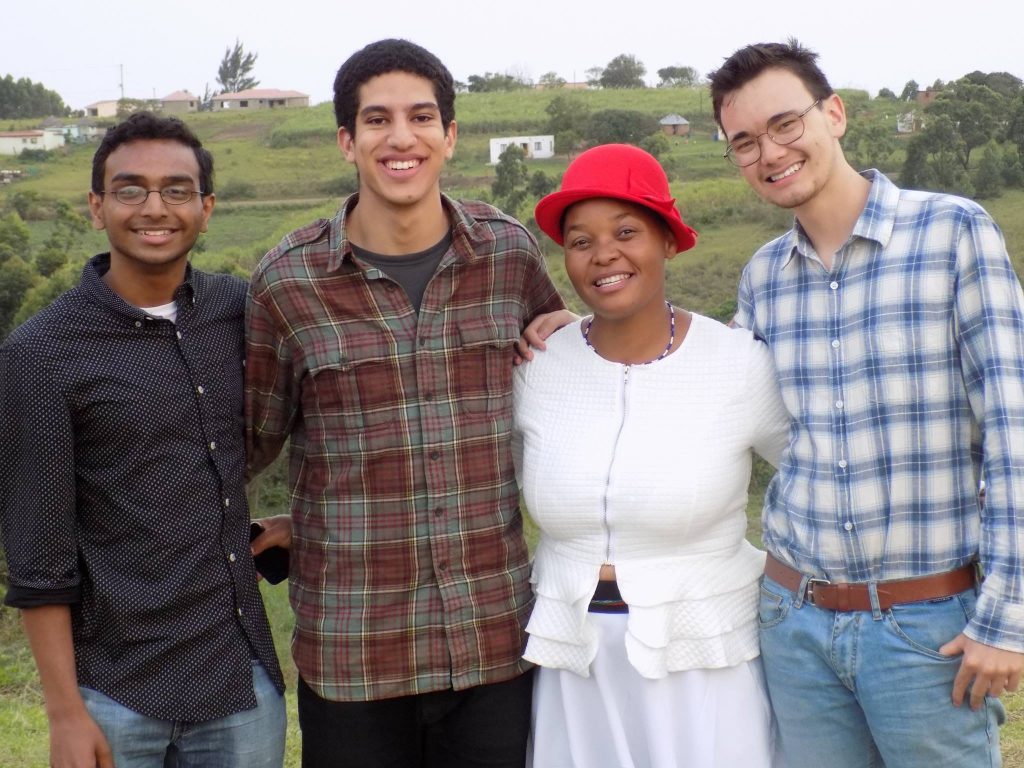SIT alum Henry Chen co-publishes article with SIT faculty on post-apartheid masculinity in South Africa
February 12th, 2020 | Africa, SIT, SIT Study Abroad

When Northwestern University graduate Henry Chen first arrived in the coastal city of Durban for SIT's South Africa: Social and Political Transformation program in August 2016, he did not yet realize he was about to embark on a years-long journey – and emerge a published scholar.
"Each time I returned to South Africa, I met more people and more lines of inquiry opened up...Over time, I became immersed in the community."
Drawn to the culture, politics, history, and people of the South Africa, Chen would return in the summer of 2017 on a grant from Northwestern and again on a Fulbright fellowship grant from August 2018 to June 2019, to research a topic about which he would become increasingly passionate: issues of multiracial identity. "It was a unique opportunity to do research, to learn about how trauma and history can manipulate truths or perceptions, particularly in smaller, post-apartheid communities affected by economic disempowerment, segregation, gender, and conflict," he says.
The result, a deeply moving article Chen recently co-published in the Journal of Southern African Studies with SIT Academic Director Imraan Buccus, his SIT advisor Deevia Bhana, and fellow academic Bronwynne Anderson, arose directly from his studies at SIT. "Each time I returned to South Africa, I met more people and more lines of inquiry opened up," Chen says. "During my trips, Imraan, Deevia and Bronwynne would help me refine my research or introduce me to new people who I could interview. Over time, I became immersed in the community."
The article, published in December 2019, focuses on how memory and masculinity in the South Durban township of Wentworth affects a group of South Africans commonly referred to as "Bruin Ous," a non-pejorative Afrikaans term for "coloured guys." (It should be noted that in South Africa the word "coloured" holds a very different meaning than in America, and describes people who are multiracial, which can include black and other races.) In it, Chen explores how "acts of bruin-ou masculinity" are often associated with "gangsterism, gun violence, and substance abuse," but does not consider the "legacies of apartheid on coloured men's construction of masculinity," or the complexities of current social and economic inequalities affecting "gender performance in a post-apartheid landscape."
I was interested in multiracial identity and came to Imraan with a really broad topic. He helped me narrow it down and also helped me apply for the Fulbright, writing a letter of recommendation.
The article shows how bruin-ou masculinity in South Africa also can be political by nature, and "an important fixture of grassroots activism in the community," as the country experiences "a nascent political renaissance among coloured South Africans across the nation" fighting economic hardship, social inequality "and, to a certain degree, apartheid nostalgia."
Chen's paper brims with anecdotes, personal conversations and stories that he painstakingly collected from two generations of men, aged 30 to 65, who speak openly of the social, political, racial, and economic divides and tensions that still exist for them in post-apartheid South Africa. Getting people to talk about such painful subjects was not at all easy, Chen says. "It was definitely difficult at first, and sometimes intimidating, but after my SIT homestays [living with locals in their homes], I was able to establish a culture of trust."
Crucial to getting the Fulbright grant, Chen says, was having support from SIT faculty and advisers on the ground in South Africa to help guide his research, which began with an SIT independent study project (ISP) he completed in 2016. "I was interested in multiracial identity and came to Imraan with a really broad topic," Chen says. "He helped me narrow it down and also helped me apply for the Fulbright, writing a letter of recommendation."
We often look out for students who demonstrate academic prowess on the program. And we are always happy to support such students to work further in order to get their work published.
Imraan Buccus says he knew immediately when he read Chen's early work that it could be expanded on. "His initial paper was presented in a highly structured manner, with order and clarity of thinking and evidence of the most up to date literature in the field," he says. "Henry did well to grasp the fluid nature of the program and revealed a willingness to wrestle with complex and contentious social issues."
Buccus added that one of the unique benefits of SIT programs is that students showing an aptitude for the work can sometimes get a chance to publish alongside faculty. "We often look out for students who demonstrate academic prowess on the program. And we are always happy to support such students to work further on their ISPs in order to get their work published." SIT has a long history of students like Chen publishing work of "great gravitas" in prestigious journals, he says, in addition to writing books or book chapters, and presenting at major conferences.
Chen says a course he took at SIT on the field ethics of journalism and ethnographic research methods "involving qualitative data, conducting interviews, taking notes, keeping journals, and collecting written and oral histories so I could gather perspectives" helped him enormously in his work. "I think in the most literal sense, all the skills I acquired in research, in methods and ethics, I will be taking with me into the future," he says.
Chen also came away from the experience with a more nuanced view on race in America. "I learned there are a lot of commonalities in the history of race and racial tensions in South Africa and America," he says. "Oftentimes, a lot of white nationalism and nativism can come from a similar place – the myth and fears surrounding white replacement, anxieties about other ethnicities, about immigrant populations. They can just manifest differently."
As a Chinese American from Denver, Colorado, I would be very interested in exploring Asian-American identity in the American West.
Now 23, Chen graduated from Northwestern last year and is a publishing associate at the American Political Science Association in Washington, DC. He says he may look into taking what he's learned abroad and applying it at home, possibly as part of a PhD program.
"Before my time in South Africa, I had not considered a career in research," he says. "But as a Chinese American from Denver, Colorado, I would be very interested in exploring Asian-American identity in the American West, particularly the interior west."

